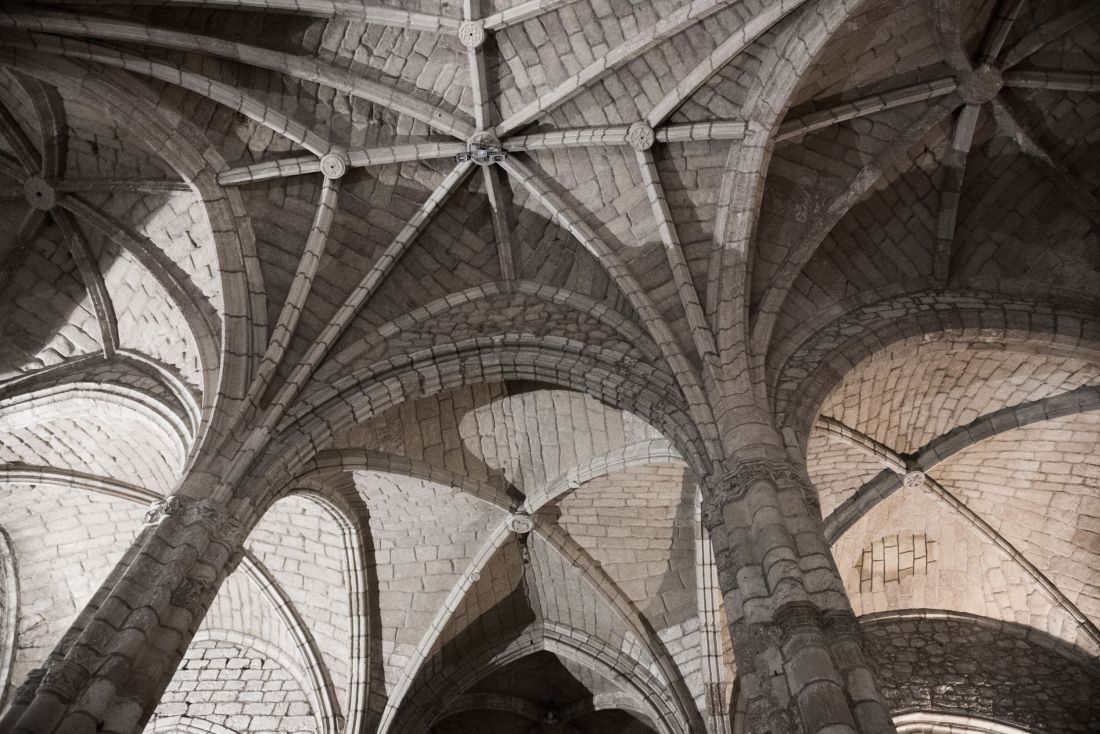A few months ago, I had a dream in which I visited an old chapel. Two priests were arguing in a low voice and at some point, the high priest mentioned a sacred book that was somehow very dear to me. He went into a room in the back, and I followed him. There he showed me the original book. It actually looked quite new and tiny. In each page, letters started large at the top and disappeared towards the bottom of the page. There was nothing there to be read, the book that I held in such high regard in my dream turned out to be fake. A bit like the Wizard of Oz. Very disappointing. Not just the book itself, but all the beliefs that sprouted from its alleged content and that would now be questioned.
The dream spoke about the idealisation of beliefs, which are sometimes not fully substantiated. It reminded me of a great passage about the Pagite Wars that Richard Bach wrote in One. Someone finds a sacred text and is filled with light and love. They give it a name. They protect its integrity. They protect it against others. You can find the full text here. It’s worth reading. If you only have 5 minutes, skip the rest of my post, and read Richard’s chapter.
“I have paper in my hands,” said the elder.
Richard Bach, One
“Give these words to the world, and they will be loved and understood by those who already know their truth. But before we give them we must name them. And that will be their death.”
We cling to our beliefs as if they were the touchstone of our lives, the pillar of our very beings. Without them, we would be lost. Obviously, we feel our beliefs are true. And, also obviously, beliefs that are different from our own must be false. The Truth cannot be ‘A’ and ‘not-A’ at the same time, can it?
Yet, we see all these people who, astonishingly enough, hold beliefs different from ours. And they do this in our face, the devils. By thinking different from us they are automatically questioning what we believe. They become a threat.
Now fear kicks in. Since our beliefs are the cornerstone of our lives, we must defend them at all costs, or we will be lost and our families with us, we think. Fear triggers the flight or fight response, so that is exactly what we do. We either go somewhere else where our beliefs are not challenged, or we fight the others.
Why do we feel threatened by beliefs different from our own? If we are as right as we think, why can’t we just let them be, wrong as they might be? The others’ beliefs are a threat to ours because, deep, deep down, we are not sure. We doubt.
But we don’t like to be reminded of the potential holes in our foundations. We prefer to look somewhere else so that we will not have to question our beliefs, because if they fall, our whole world will fall with them. Maybe our beliefs are wrong, but we’d rather not find out. We’d rather hide, fight, kill others for what they believe, as long as we do not have to question ourselves. Face our doubts. Look at the void.
We consider ourselves to be rational beings. We believe our decisions are based on logical reasoning. Yet, we do not dare to question the cornerstone of our lives. That’s too risky. What if… everything crumbled down? Well, if we happened to be wrong, wouldn’t that be preferable, to get rid of the chains that fetter us? And fear will answer: ‘No. Wrong (if so) is better than unknown. Go away! Or I’ll make you’.
In the second half of life, we are forced to look at ourselves in the mirror. Something inside us starts questioning everything, like Descartes, down to our very existence. It strips us until we are completely naked. Sitting on the top of our doubt, nowhere to hide. We now see the emperor’s new clothes for what they really are. And we are scared. The earth shakes beneath us. We see nothing we can chain ourselves to, no rock to cling to. Is this what freedom really tastes like?
Doubt is the crown of life because truth and error come together. Doubt is living, truth is sometimes death and stagnation. When you are in doubt you have the greatest chance to unite the dark and light sides of life.
Carl G. Jung, Dream Analysis 1
In The fear of freedom, Fromm explained how humans don’t really want to be free and they will make up all sort of rules and commitments so that they will not have to choose. Questioning one’s beliefs takes an incredible amount of courage. Especially if we’re not going to change old clothes for new ones. If we are just going to sit on our doubt. Scary but liberating. A taste of freedom. No truth to be found and defended, just questions.

Absolute truth. You nailed it. Fear in every form lies at the heart of every issue we face in our very troubled world.
LikeLike
Thanks for reading Julia, and for your kind comments. I agree, fear is always present. I has kept us alive this far, but it sometimes gets too attached to our beliefs.
LikeLike